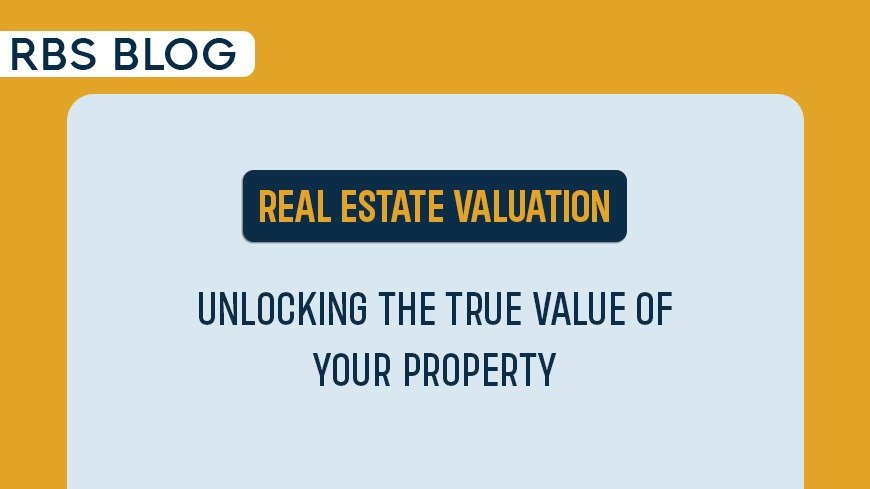- August 19, 2024
- Posted by: Muhammad Shehzad
- Category: Blogs

Hiring a real estate agent is always a wise option, whether you want to sell a property or get a valuation. Accurate evaluation and successful property require a deep insight into the market and who, other than a seasoned realtor, can assist you best. Didn’t get the point? Let’s delve a bit deeper to know all about real estate valuation and unlocking the true potential of your property.
What determines the Real Estate Valuation?
Multiple factors are involved in determining a property value, including;
- the location of your property,
- size and usability,
- condition of the property,
- and market condition (demand and supply).
Why Accurate Valuation Matters?
- To make informed decisions: An accurate valuation will give you a clear idea of how much capital you will be getting, whether you want to buy a new property or build any asset.
- Fair Market Price: It will help you list your property at a fair price and attract potential clients quickly.
- Negotiation Backup: Getting property valuation will help you support your stance during the negotiation process with the potential party.
- Loan or Lease Application: Banks often seek a valuation to approve the loan or lease application and ensure the property is worth the amount borrowed.
- Smooth Transaction: Accurate and timely valuation leads to smooth transactions without any delays and complications.
What are the three valuation approaches?
Here’s a detailed explanation of the three property valuation approaches, with a summary at the end:
1. Sales Comparison Approach
Overview
The Sales Comparison Approach, also known as the Market Approach, is the most commonly used method for valuing residential properties. Besides, it determines a real estate valuation by comparing it to similar properties that have recently sold in the same area.
Process
- Identify comparable properties (comps) that are similar in size, condition, location, and feature.
- Adjust for differences between the subject property and the comps (e.g., differences in square footage, condition, or amenities).
- Use the adjusted prices of the comps to estimate the value of the subject property.
Best for: Residential properties and markets with many comparable sales.
Strengths
- Reflects real-time market activity.
- Easy to understand for buyers and sellers.
Weaknesses
- It can be less reliable in markets with few sales or rapidly changing conditions.
2. Cost Approach
Overview
The Cost Approach values a property by determining how much it would cost to replace or reproduce the building, minus depreciation, and then adding the land value. However, this method is most commonly used for new constructions or special-purpose buildings.
Process
- Estimate the cost of replacing or reproducing the structure.
- Subtract depreciation to account for aging, wear and tear, and obsolescence.
- Next, add the land value to the depreciated cost of the building.
Best for: Newer properties, special-purpose buildings, and when comparable data isn’t available.
Strengths
- Useful for properties with unique features.
- Particularly effective for new construction or special-purpose properties.
Weaknesses
- Depreciation estimates can be complex and subjective.
- Also, it may not reflect actual market conditions in rapidly appreciating or depreciating markets.
3. Income Approach
Overview
The Income Approach is commonly used for income-producing properties like apartment buildings, office spaces, or rental properties. It values the property based on its income.
Process
- Estimate the potential gross income the property could generate.
- Subtract vacancy losses and operating expenses to calculate the net operating income (NOI).
- Apply a capitalization rate (cap rate) to the NOI to determine the property’s value.
Best for: Rental or commercial properties.
Strengths
- Directly linked to the property’s income potential.
- A strong indicator of value for investment properties.
Weaknesses
- Requires accurate income and expense data.
- Selecting the correct capitalization rate can be subjective.
Real Estate Valuation: Key Takeaways
- The sales Comparison Approach is most useful for valuing residential properties and relies on recent sales of similar properties.
- The Cost Approach estimates the value based on replacement costs minus depreciation and is ideal for new or unique buildings.
- The income Approach focuses on income-generating properties, valuing them based on their potential to produce revenue.
Each method serves specific property types and market conditions, and appraisers often combine these approaches to produce the most accurate valuation.
Also Read: Capital Smart City Overseas West
Best Property Finds in Pakistan’s Real Estate Market for Investment Purposes Today
Wrap Up
Each of these real estate valuation approaches serves a different purpose and is suitable for different types of properties. You can hire the best valuation service providers and leave the fuss to them. Meanwhile, explore the capital smart city overseas west payment plan and grab your dream property. Contact RBS today to get all the property insights you need.
